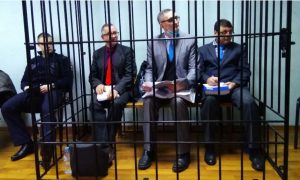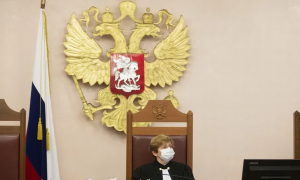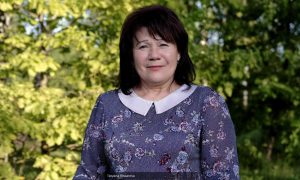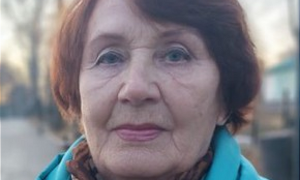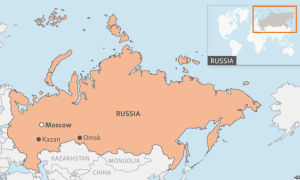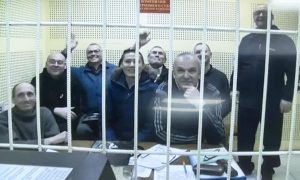Thank you, Mr. Chair.
The freedom of thought, conscience, religion or belief is a pillar of the OSCE’s concept of comprehensive security. In the Helsinki Final Act, we determined that “participating States will respect human rights and fundamental freedoms, including the freedom of thought, conscience, religion or belief,†and that states “will recognize and respect the freedom of the individual to profess and practice, alone or in community with others, religion or belief acting in accordance with the dictates of his own conscience.†In Copenhagen in 1990, we reaffirmed that “this right includes freedom to change one’s religion or belief and freedom to manifest one’s religion or belief, either alone or in community with others, in public or in private, through worship, teaching, practice and observance.†More recently in 2010 in Astana, we determined that “greater efforts must be made to promote freedom of religion or belief….†These decisions demonstrate recognition by all 57 participating States that the freedom of thought, conscience, religion or belief remains essential to maintaining human dignity, and to ensuring security in the OSCE region.
The United States is, therefore, extremely concerned by the Russian government’s actions targeting members of religious minorities, including the Jehovah’s Witnesses, Crimean Tatars, and others, under the façade of combating “extremism.†More recently, on March 15, the Russian Ministry of Justice suspended the activities of the Jehovah’s Witnesses and asked the Supreme Court to dissolve the Jehovah’s Witnesses Administrative Center and its 395 local religious organizations for supposed “extremist activity.†Should the Supreme Court grant the Ministry of Justice’s request, we understand that there effectively would be no further opportunity for appeal within the Russian court system. If property held by these local organizations were to be confiscated by the state, the local organizations would likely cease to exist as legal entities, resulting in the complete legal dissolution of a religious group that has been present in Russia since the 1800s. Should this occur and Jehovah’s Witnesses continue their activities, individual Jehovah’s Witnesses could risk criminal prosecution simply for gathering to practice their faith.
Local and regional authorities have been targeting Jehovah’s Witnesses for years in Russia, as authorities have sought to shutter local branches on baseless “extremism†grounds.
Mr. Chair, colleagues, let me be clear – the threat to our region from violent extremism and terrorism is real. However, the prosecution of members of peaceful religious minority groups for “extremism†serves only to distract from and undermine our mutual efforts to combat true violent threats.
The United States urges Russian authorities to abide by Russia’s international obligations and OSCE commitments. We therefore call upon Russian authorities to withdraw their request to liquidate the Jehovah’s Witnesses Administrative Center, stop their overall repression of Jehovah’s Witnesses in Russia, allow Jehovah’s Witnesses to enjoy their rights to freedom of religion and peaceful assembly without interference, as guaranteed also by the Russian Federation’s own constitution, and ensure that Russia’s “anti-terrorism†and “anti-extremism†legislation is not misused to target members of religious minorities. We call on Russia to respect the right of all of its residents to exercise the freedom of thought, conscience, religion or belief.
In closing, let me add that the United States looks forward to the upcoming OSCE Supplementary Human Dimension Meeting on the topic of the freedom of thought, conscience, religion or belief. We hope all participating States will support the Chairmanship’s effort to hold this event, and look forward to a principled discussion of this important topic.
Thank you, Mr. Chair.
https://osce.usmission.gov/russias-misuse-terrorism-extremism-laws-restrict-freedom-thought-conscience-religion-belief/Â
